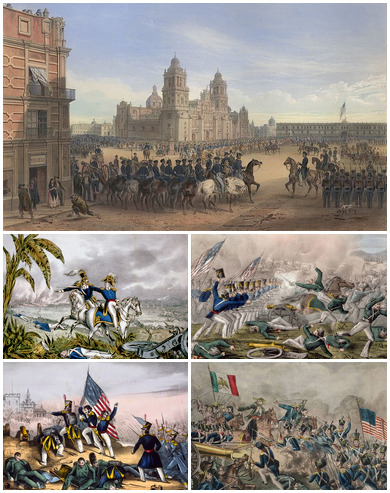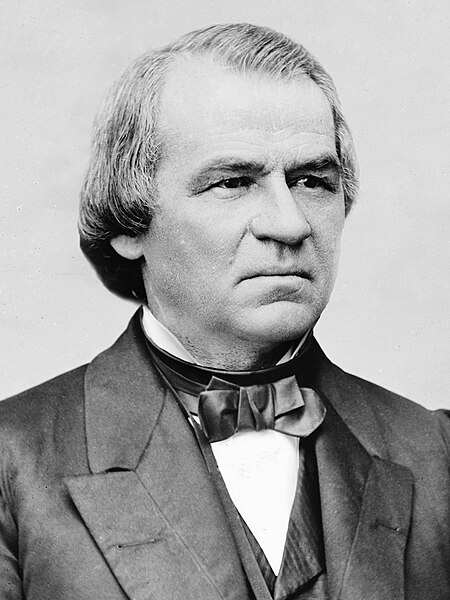February 24th stands as a testament to the multifaceted tapestry of human history, marking events that have shaped societies, altered geopolitical landscapes, and echoed through the corridors of time.
From ancient empires’ decisive actions to modern-day political shifts, this date encapsulates moments of innovation, tragedy, and transformation.
These events not only define the character of their respective eras but also continue to influence our contemporary world. Join us as we uncover the stories and legacies born on this day, revealing the indelible marks they’ve left on the fabric of history.
February 24th Events in History
303 – Roman Emperor Diocletian orders the destruction of the Christian church in Nicomedia, marking the start of the Diocletianic Persecution
This event is considered the outset of the Diocletianic Persecution, the most severe persecution of Christians in the Roman Empire. Diocletian, aiming to reinforce Roman religious unity, demanded that all citizens perform sacrifices to the Roman gods and the well-being of the emperor.
Also Read: February 23 – On this Day in History
The persecution involved the destruction of Christian texts and places of worship across the empire, and the imprisonment or execution of Christians who refused to comply. This period of persecution continued until Constantine the Great issued the Edict of Milan in 313, granting religious freedom throughout the empire.
1582 – Pope Gregory XIII announces the Gregorian calendar
To correct the inaccuracies of the Julian calendar and realign the date of the spring equinox to March 21, Pope Gregory XIII introduced the Gregorian calendar.
This adjustment was necessary because the Julian calendar, established by Julius Caesar in 46 B.C., did not accurately reflect the actual time it takes for the Earth to orbit the Sun, known as a tropical year.
The Gregorian calendar implemented a new rule for leap years and omitted 10 days for the correction in October 1582. Today, the Gregorian calendar is the most widely used civil calendar across the world.
1607 – L’Orfeo by Claudio Monteverdi, one of the first works recognized as an opera, receives its premiere performance
Monteverdi’s “L’Orfeo” is often considered the first great opera in music history. Premiered in Mantua, Italy, it tells the Greek legend of Orpheus, who travels to the underworld to bring his beloved Eurydice back to the living world.
Also Read: February 25th Events in History
Monteverdi’s use of the orchestra to support the vocal lines and his expressive composition techniques were revolutionary at the time. “L’Orfeo” blends music, drama, and the innovative use of orchestral sounds to express emotion, setting the foundation for the future development of opera as a genre.

1821 – Final stage of the Mexican War of Independence from Spain with Plan of Iguala
The Plan of Iguala, also known as the Plan of the Three Guarantees, was proclaimed by Agustín de Iturbide, which outlined the foundations for Mexico’s independence from Spanish rule.
The plan promised equality for Spaniards and creoles, independence for Mexico, and Roman Catholicism as the state religion. This agreement led to the end of the Mexican War of Independence when the Spanish Viceroy signed the Treaty of Córdoba in 1821, recognizing Mexico’s independence.
1826 – The signing of the Treaty of Yandabo marks the end of the First Anglo-Burmese War
The Treaty of Yandabo was signed between the British East India Company and the Kingdom of Ava (Burma), concluding the First Anglo-Burmese War, which started in 1824. The war was one of the three Anglo-Burmese Wars fought in the 19th century, part of the British colonial conquests in Asia.
According to the treaty, Burma had to cede several territories, including Assam, Manipur, Arakan, and Tenasserim, to the British, and pay a large indemnity. This defeat marked the beginning of British colonial influence in Burma, which would grow over the next decades.
1868 – Andrew Johnson becomes the first President of the United States to be impeached by the House of Representatives. He was later acquitted by the Senate
Andrew Johnson, who became president after the assassination of Abraham Lincoln, faced significant opposition from the Radical Republicans in Congress due to his lenient policies towards the Southern states after the Civil War.
The main point of contention was his approach to Reconstruction and the swift reintegration of the former Confederate states back into the Union without guaranteeing rights to the newly freed slaves.
The tipping point came when Johnson dismissed Edwin M. Stanton, the Secretary of War, without Senate approval, violating the Tenure of Office Act.
This led the House of Representatives to impeach him, charging him with high crimes and misdemeanors. However, during the Senate trial, he was acquitted by one vote, thus remaining in office until the end of his term.

1920 – The Nazi Party is founded in Germany
Originally known as the German Workers’ Party (DAP), the party was renamed the National Socialist German Workers’ Party (NSDAP), or Nazi Party, in 1920. Adolf Hitler joined the party in 1919 and quickly became its leader.
The party’s platform combined extreme nationalist, racial, and anti-Semitic ideas. The Nazis sought to overturn the Treaty of Versailles, rebuild Germany into a powerful nation, and establish a pure “Aryan” race.
Their rise to power began in earnest following the economic turmoil of the Great Depression, leading to Hitler’s appointment as Chancellor in 1933 and the establishment of a totalitarian regime.
1942 – The Battle of Los Angeles: an unidentified object causes a blackout in Los Angeles, resulting in a barrage of anti-aircraft fire from the U.S. Army
Occurring less than three months after the United States entered World War II as a result of the Japanese attack on Pearl Harbor, the Battle of Los Angeles, also known as the Great Los Angeles Air Raid, was a false alarm caused by a supposed enemy attack.
It resulted in a massive anti-aircraft artillery barrage in the skies over Los Angeles in the early hours of February 25, 1942. Initially thought to be an attack by Japanese forces, the cause of the alarm was later attributed to a combination of weather balloons and heightened tensions and nerves among the military and civilian populations. The incident highlighted the fear and paranoia of the time.
1945 – Egyptian Premier Ahmad Mahir Pasha is assassinated in Parliament after declaring war on the Axis powers
Ahmad Mahir Pasha was a prominent Egyptian politician who served as Prime Minister of Egypt. His tenure was marked by efforts to maintain Egyptian neutrality during the early years of World War II.
However, as the war progressed and the likelihood of an Axis defeat became evident, Mahir Pasha led Egypt to declare war on the Axis powers in February 1945, aligning with the Allies.
Just hours after making this declaration, he was assassinated by a young nationalist, Mahmoud El Essawy, who opposed Egypt’s involvement in the war and the government’s policies.
1946 – Juan Perón is elected president of Argentina
Juan Domingo Perón, a military officer and politician, was elected President of Argentina after rising to prominence through his leadership roles in the Labor Department and later as Vice President.
His presidency began the era of Peronism, a political movement characterized by populist policies aimed at empowering the working class, economic nationalism, and political authoritarianism.
Perón’s social and economic reforms, including significant improvements in labor rights and the expansion of social welfare programs, were instrumental in his gaining widespread support among the working class. His relationship with his second wife, Eva Perón, also played a crucial role in his political success.
1968 – Vietnam War: The Tet Offensive is halted; South Vietnam recaptures Hué
The Tet Offensive was a coordinated series of North Vietnamese attacks on more than 100 cities and outposts in South Vietnam. The offensive was an attempt to foment rebellion among the South Vietnamese population and encourage the United States to scale back its involvement in the Vietnam War.
Although the North Vietnamese and Viet Cong forces achieved surprise initially, most of their gains were temporary. The city of Hué, one of South Vietnam’s most important cultural and historical centers, witnessed some of the fiercest fighting.
It took nearly a month for U.S. and South Vietnamese forces to recapture the city. The Tet Offensive was a turning point in the Vietnam War, leading to significant changes in U.S. policy and public opinion.
1971 – Algeria nationalizes 51% of French oil concessions
This move was part of a broader wave of resource nationalization that swept through many newly independent countries in the 1960s and 70s.
For Algeria, which gained independence from France in 1962 after a brutal eight-year war, oil was the backbone of the economy. The nationalization of oil resources was seen as a crucial step in asserting economic independence and sovereignty over natural resources.
It allowed the Algerian government to gain greater control over its oil production and revenues, significantly impacting the country’s development trajectory. This move also strained Algeria’s relations with France and other Western countries involved in its oil industry.
1981 – The 6.7 Ms Gulf of Corinth earthquake affects Central Greece with a maximum Mercalli intensity of VIII (Severe)
This earthquake caused significant damage across Central Greece, particularly in the Gulf of Corinth area. The quake resulted in the loss of 22 lives and injured hundreds, with extensive damage to buildings and infrastructure.
Earthquakes are not uncommon in Greece, which lies in a highly seismically active region due to the complex interactions between the African and Eurasian tectonic plates. The 1981 earthquake underscored the importance of earthquake preparedness and resilient infrastructure in seismic zones.
1989 – Ayatollah Ruhollah Khomeini offers a $3 million bounty for the death of The Satanic Verses author Salman Rushdie
This event followed the publication of Salman Rushdie’s novel “The Satanic Verses,” which was deemed blasphemous by many Muslims around the world. Ayatollah Khomeini, the Supreme Leader of Iran, issued a fatwa, or religious edict, calling for Rushdie’s assassination.
The bounty and fatwa prompted global controversy and debates about freedom of speech, religious tolerance, and the limits of both. Rushdie was forced into hiding under the protection of the British government for several years, and the incident strained diplomatic relations between Iran and several Western countries.
1991 – The First Gulf War: Ground troops cross the Saudi Arabian border and enter Iraq, thus beginning the ground phase of the war
This marked the beginning of the ground assault phase of the Gulf War, after weeks of aerial and missile attacks on Iraqi targets.
The coalition forces, led by the United States, aimed to expel Iraqi troops from Kuwait, which Iraq had invaded and annexed in August 1990. The ground war was characterized by a large-scale, swift offensive that took advantage of superior coalition technology, air power, and military tactics.
This phase of the war lasted only 100 hours before a ceasefire was declared, resulting in the liberation of Kuwait and significant Iraqi military losses. The rapid success of the ground campaign demonstrated the effectiveness of modern military technology and strategy in conventional warfare.
1996 – The last occurrence of February 24 as a leap day in the European Union and for the Roman Catholic Church
This unique event is rooted in the transition from the Julian to the Gregorian calendar, which corrected the Julian calendar’s miscalculation of the solar year.
While the Gregorian calendar was adopted by many countries in the late 16th century, some regions and institutions were slower to make the change. The European Union, as a political entity, didn’t exist when the Gregorian calendar was adopted by various member states.
The reference here is symbolic, emphasizing the widespread modern acceptance of the Gregorian calendar, including by the Roman Catholic Church, which spearheaded its adoption. The statement underscores the end of leap day adjustments related to this transition.
2004 – The 6.3 Mw Al Hoceima earthquake strikes northern Morocco with a maximum Mercalli intensity of IX (Violent). Nearly 630 people die and 926 are injured
This earthquake occurred near the city of Al Hoceima in the Rif region of northern Morocco. The quake caused widespread destruction in the area, leading to at least 630 fatalities, injuring more than 900 people, and leaving thousands homeless.
The earthquake’s impact was devastating due to the region’s mountainous terrain, which complicated rescue and relief efforts, and the vulnerability of the local infrastructure. This event highlighted the need for improved earthquake preparedness and building standards in seismic-prone areas.
2008 – Fidel Castro retires as the President of Cuba after nearly fifty years
Fidel Castro’s resignation marked the end of an era in Cuban politics. Having led the Cuban Revolution that overthrew the Batista dictatorship in 1959, Castro established a communist state and became one of the world’s longest-serving leaders.
His tenure was characterized by significant achievements in health care and education but was also marked by economic hardship and human rights concerns. Castro’s retirement due to health issues led to his brother, Raúl Castro, assuming the presidency.
This transition initiated a period of gradual reform and the thawing of relations with some international actors, including a historic rapprochement with the United States.
2011 – Final Launch of Space Shuttle Discovery (OV-103)
The Space Shuttle Discovery’s final mission, STS-133, marked the end of its nearly 30-year career in NASA’s Space Shuttle program. Discovery was one of the fleet’s most storied orbiters, having completed 39 missions, more than any other spacecraft at the time.
It played key roles in the deployment of the Hubble Space Telescope, the docking with the Russian Mir Space Station, and the construction of the International Space Station (ISS).
The retirement of Discovery and the Space Shuttle program signaled the end of an era in American spaceflight, leading to a period of transition and the development of new spacecraft and commercial spaceflight capabilities.
2022 – Russia begins a full-scale invasion of Ukraine, marking a significant escalation of the Russo-Ukrainian War which began in 2014
This event refers to the intensification of the conflict that began with the annexation of Crimea by Russia in 2014 and the subsequent conflict in Eastern Ukraine.
The 2022 invasion involved a widespread military campaign across multiple fronts, aiming to capture key Ukrainian cities and topple the government. The invasion drew widespread international condemnation, led to severe economic sanctions against Russia, and initiated a significant humanitarian crisis.
This conflict has had profound implications for global politics, security, and the international order, rekindling fears of a broader confrontation between NATO and Russia and leading to increased military support for Ukraine from Western countries.
